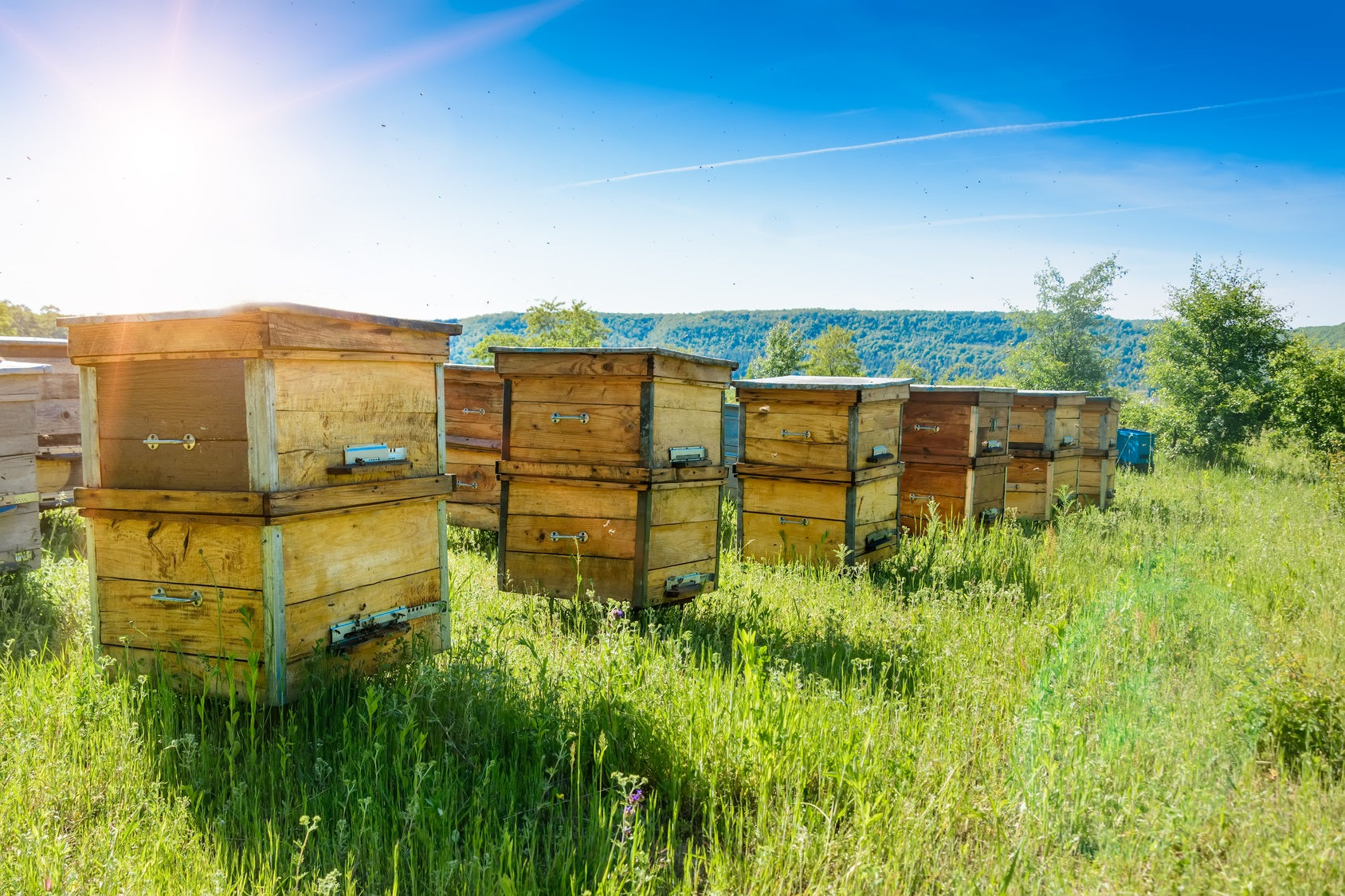Your Cart is Empty

THE VITAL CONNECTION: BIODIVERSITY, POLLINATORS AND OUR FOOD SUPPLY
BY ANGELA VAN ALTEN/YSSELDYK, CNP
Biodiversity and pollinators are inseparable elements of our ecosystems, with profound implications for our food production and the sustainability of our supply chain. In this article, we will explore the critical relationship between biodiversity and the well-being of honeybees and other pollinators, emphasizing the importance of fostering biodiversity to support our beehive family brand and ensure a resilient supply chain.
THE IMPORTANT OF BIODIVERSITY FOR POLLINATORS
Biodiversity, encompassing species, genes, and ecosystems, plays a fundamental role in maintaining the health and resilience of pollinators. Diverse ecosystems offer a wide range of flowering plants, ensuring a consistent food source throughout the year. Moreover, diverse plant species provide essential nutrients and medicinal properties, promoting the overall well-being of pollinators. When biodiversity is lost, these interconnected relationships are disrupted, threatening the survival of pollinator populations.
LINKING BIODIVERSITY TO OUR SUPPLY CHAIN
The decline of pollinators, such as honeybees, due to the loss of biodiversity can have far-reaching impacts on our supply chain. Many crops that rely on pollination contribute to the production of vital ingredients and raw materials used in various industries. For example, fruits, vegetables, nuts, and seeds are staples in the food and beverage industry, while botanicals and natural fibers are crucial to cosmetics, textiles, and pharmaceuticals. Declining pollinator populations can result in reduced crop yields, diminished product quality, and increased costs for producers, ultimately affecting the availability and affordability of goods.
SUPPORTING BIODIVERSITY FOR THE HEALTH OF POLLINATORS AND FOOD SUPPLY
Biodiversity is the cornerstone of pollinator health and the sustainability of our supply chain. By recognizing the interdependence of biodiversity, pollinators, and our own well-being, we can work together to foster diverse ecosystems. Let us embrace our responsibility as conscious consumers and advocates for biodiversity, ensuring a flourishing future for pollinators and the continuity of our supply chain.
LINKS TO FURTHER READING:
REFERENCES:
Garibaldi, L. A et al (2011).Stability of pollination services decreases with isolation from natural areas despite honey bee visits. Ecology letters, 14(10), 1062–1072.https://doi.org/10.1111/j.1461-0248.2011.01669.x
Kremen, C., & M'Gonigle, L. K. (2015). Small-scale restoration in intensive agricultural landscapes supports more specialized and less mobile pollinator species. Journal of Applied Ecology, 52(2), 602-610.
ABOUT THE AUTHOR: Angela Van Alten/Ysseldyk is a second-generation entrepreneur and co-owner of Dutchman’s Gold. She is the eldest daughter of John and Annie Van Alten, Dutchman's Gold founders. Angela is a Certified Nutritional Practitioner and holds a degree in Business. She has worked with some of Canada's top vitamin brands in various roles over the last 25 years, helping Canadians achieve optimal wellness. Her mission is to empower people to have an extraordinary life, while spreading Beehive Goodness at Dutchman's Gold.